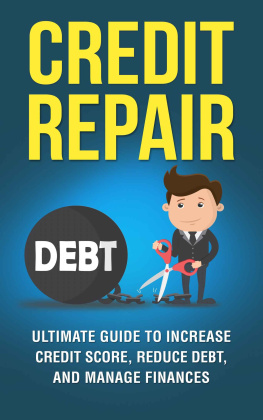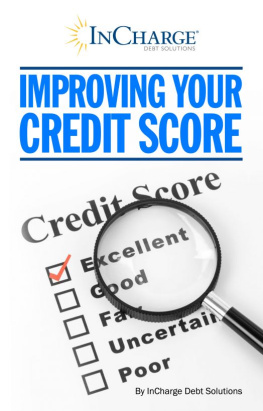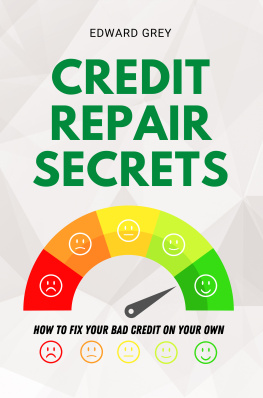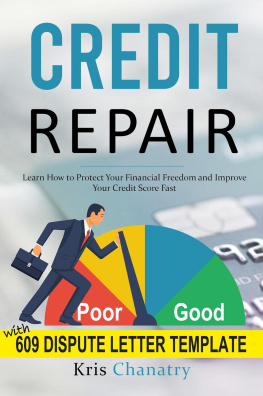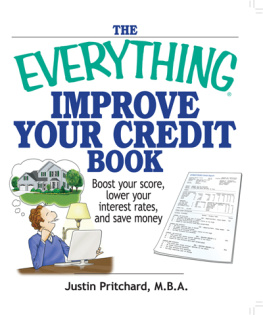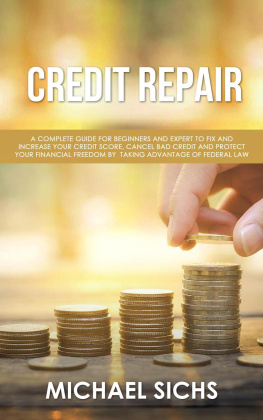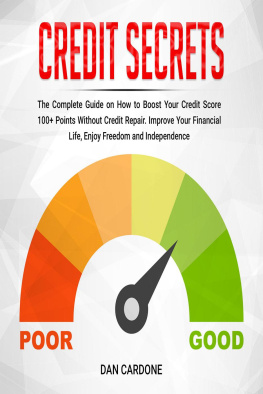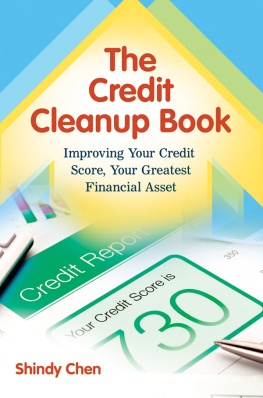Creditit is a word we can learn to hate; particularly, when we get into a situation that requires us to repair it. You can improve your credit, but not with magical solutions. Your credit and your FICO score will not be corrected overnight with any techniques you may read about, even here.
It takes time, persistence, and determination to meet your financial goals to see a resolution. Luckily, you have access to a guide that will offer you step-by-step instructions that anyone can follow.
You will first learn about credit, your credit scores, and types of debt. You will gain knowledge for how to increase your credit score and the major complications that can arise to decrease your score.
This guide will explore methods to reduce your debt while establishing good types of debt that help you in your financial stability.
Eventually, you will gain insight into managing your finances better. It is possible to live debt free, with excellent credit, and top-notch financial management.
The secrets are within these pages, all laid out for you to read through and understand with ease. The first step you will take right now is to determine what your financial goal is: do you want to live debt free, with minimal debt, buy a home, or make your score 800? Set your goal and then follow the steps to ensuring it happens.
Chapter 1: What is Credit
Credit is a form of purchasing by borrowing money that will pay for goods or services. Credit is provided by a grantor, whom you will pay back per the agreement. You will pay the amount you spent plus finance charges, at an agreed upon time.
Finance charges are also known as interest fees, which is a percentage based on the sum of money borrowed. You may already understand this definition, after all, you are reading this book because you need to repair your credit. However, it is also possible that you need to improve your credit because you have little credit history.
Most of us understand the larger definition of what credit is but do not stop to consider the types of credit that can impact your credit history, including improving or worsening your credit score.
Four types of credit exist. Revolving credit is like a credit card, where you have a credit limit that you can charge up to, and each month you carry a balance, paying a minimum payment to keep spending on that credit line.
Charge cards are in certain ways like credit cards. You have a limit. You can spend up to that limit; however, charge cards require you to pay the entire balance at the end of the month or on the payment date.
Service credit is a credit agreement for services, such as mobile phones, electricity, and gym memberships. You pay the amount each month based on usage or a specific service charge. Some companies like cell phones report this credit to the reporting agencies.
An installment loan is available in two types: secured and unsecured. Secured Installment credit is a mortgage or car loan. You used a particular amount of money to make a purchase, agreeing that for three to thirty years (depending on the type of loan) you would make a monthly payment. Interest and taxes are part of the agreement. Unsecured loans are those that are not backed by goods. A personal loan that does not have collateral, such as a house backing it, is an unsecured loan.
Credit is a necessary part of life if you want to own certain things, such as a home or car. Most of us do not make enough from our salaries to cover a massive purchase. Good to excellent credit is the best way to buy a house or car because it can help you obtain a lower interest rate. Credit is also used by landlords to accept or deny a rental property to you.
To obtain credit, most grantors will assess how much credit history you have, if this history is in good standing, and whether your debt to income ratio is in proper balance.
If you have more debt than income, it is possible for your credit score to be lower than excellent or good, and someone may deny giving you credit for fear that you will have too much debt.
What is Your Credit Score?
Your credit score is a three-digit number created using an algorithm to rate the information on your credit report. There are a few credit scoring models out there, but creditors typically look at your FICO score. FICO scores range from 300 to 850. Anything above 750 is considered excellent. You want your score to be anywhere from 700 to 850 to get the best interest rates for the credit you need. Scores above 700 are good. Scores between 600 and 700 are fair, and anything below 600 is not good.
When calculating your score, the payment history, amounts owed, length of history, types of credit, and new credit matter. Personal and demographic information is not applicable to the score.
Your payment history accounts for 35 percent of your score. This history assesses your ability to pay on time, without creating delinquencies. Missed payments and late payments lower your score.
The amount you owe for all your accounts counts for 30 percent of your score. Companies look to see how much credit you have and how much you have used on revolving credit accounts. If you have more than 50 percent of the credit limit used on credit cards, your score will be lower.
The length of your credit history counts for 15 percent of the credit score and assesses how long you have had credit accounts open and the account activity. The score is evaluating if you consistently close and open new accounts or keep accounts open for several years.
The types of credit you have are 10 percent of your credit score. The company creating the score looks at revolving and installment accounts to determine if you have a fair spread of both types of credit or tend towards one type.
New Credit is also 10 percent of your score. This part of the score views new credit pursuits, including the number of new accounts and credit inquiries that have been made.
Some companies reporting to the credit agencies do so each month, but many will report your history every three months. Typically, the average is taken for those months, so if you make one late payment it may not appear, but if you make two late payments, it will be recorded.

